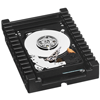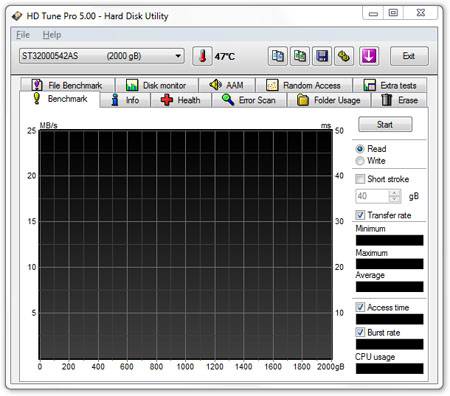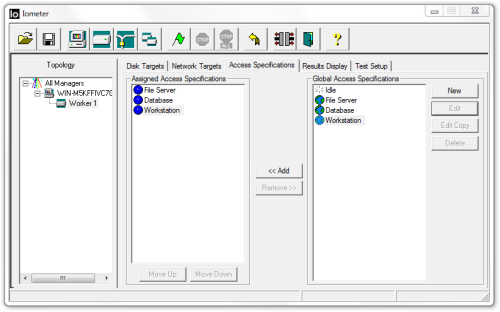- Qualcomm Launches Snapdragon 4 Gen 2 Mobile Platform
- AMD Launches Ryzen PRO 7000 Series Mobile & Desktop Platform
- Intel Launches Sleek Single-Slot Arc Pro A60 Workstation Graphics Card
- NVIDIA Announces Latest Ada Lovelace Additions: GeForce RTX 4060 Ti & RTX 4060
- Maxon Redshift With AMD Radeon GPU Rendering Support Now Available
Western Digital VelociRaptor 1TB 10K RPM Hard Drive Review

Need big storage, but can’t compromise on performance? At a time when 1TB SSDs cost as much as an excellent gaming PC, the obvious choice becomes WD’s VelociRaptor – which not only recently received a refresh, but also a 1TB model. Let’s take a look at it, and see how it compares to WD’s other current desktop hard drives.
Page 4 – Synthetic: HD Tune Pro 5.0 & Iometer 1.1.0
One of the best-known storage benchmarking tools is HD Tune, as it’s easy to run, covers a wide-range of testing scenarios, and can do other things such as test for errors, give SMART information and so forth. For our testing with the program, we run the default benchmark which gives us a minimum, average and maximum read speed, along with an access time result.


Given its rotational boost, it was expected that the VR drive could push a far higher throughput than the Caviar Black, but what’s most impressive is the access time – at under 7ms. Access time is the biggest bottleneck on mechanical hard drives with regards to multi-tasking and loading data, so to drop from 11.5ms to 6.8ms is impressive. It’s even more impressive when you compare it to the Caviar Blue.
Iometer 1.1.10
Originally developed by Intel, and since given to the open-source community, Iometer (pronounced “eyeawmeter”, like thermometer) is one of the best storage-testing applications available, for a couple of reasons. The first, and primary, is that it’s completely customizable, and if you have a specific workload you need to hit a drive with, you can easily accomplish it here. Also, the program delivers results in IOPS (input/output operations per second), a common metric used in enterprise and server environments.
The level of customization cannot be understated. Aside from choosing the obvious figures, like chunk sizes, you can choose the percentage of the time that each respective chunk size will be used in a given test. You can also alter the percentages for read and write, and also how often either the reads or writes will be random (as opposed to sequential). We’re just touching the surface here, but what’s most important is that we’re able to deliver a consistent test on all of our drives, which increases the accuracy in our results.
Because of the level of control Iometer offers, we’ve created profiles for three of the most popular workloads out there: Database, File Server and Workstation. Database uses chunk sizes of 8KB, with 67% read, along with 100% random coverage. File Server is the more robust of the group, as it features chunk sizes ranging from 512B to 64KB, in varying levels of access, but again with 100% random coverage. Lastly, Workstation focuses on 8KB chunks with 80% read and 80% random coverage.
Because these profiles aren’t easily found on the Web, with the same being said about the exact structure of each, we’re hosting the profile here (right-click, save as) for those who want to benchmark their own drives with the exact same profiles we use. Once Iometer is loaded, you can import our profile.
We should note that as a whole, hard drive vendors are not that concerned with Iometer testing, and some even recommend against it. The reasons are simple: SSDs will clean house where raw IOPS performance is concerned, so it makes hard drive performance look poor. But we still value results gained with the program because when hard drives are as IOPS-strapped as they are, seeing one drive deliver higher numbers than another means that it’ll better handle the heaviest of workloads.



Continuing its relative domination, the VelociRaptor drive in all cases boosts IOPS performance about 30% compared to the Caviar Black, and even more compared to the Blue.
Support our efforts! With ad revenue at an all-time low for written websites, we're relying more than ever on reader support to help us continue putting so much effort into this type of content. You can support us by becoming a Patron, or by using our Amazon shopping affiliate links listed through our articles. Thanks for your support!







